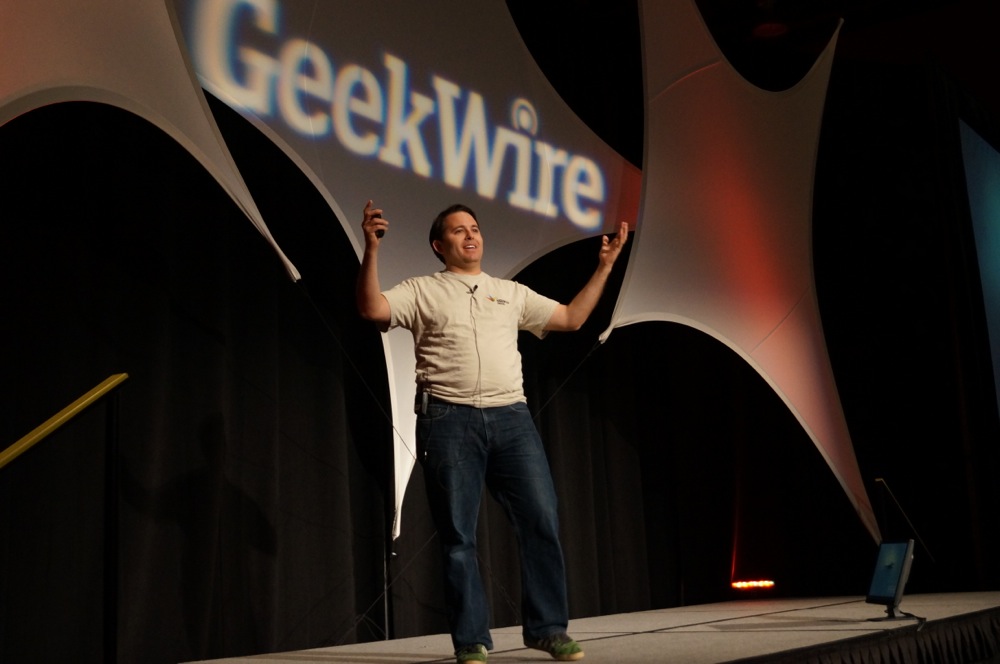Tech industry veteran Adam Tratt has told a story or two in his day, but more than that, he has experienced first-hand the value of “entrepreneurial storytelling” — the ability for startup founders to convey their vision in a compelling way, creating inspiration out of thin air.
Tratt and the team at Seattle startup Giant Thinkwell have grabbed attention in recent months with their Haiku Deck presentation-creation app for iPad. His past experience includes roles at Microsoft, Cranium and other companies. His recent presentation at Seattle 2.0 Startup Day drew on that experience with tips to help telling compelling stories.
 For anyone who missed the event, or wants to relive the highlights, we’re rolling out video and related content from talks by Startup Day speakers. Watch the full video of Tratt’s talk above, and continue reading for a few of our favorite takeaways. You can also access the audio here as an MP3, for listening on your favorite device. A big thanks to the team at Bootstrapper Studios for their help on all of this content.
For anyone who missed the event, or wants to relive the highlights, we’re rolling out video and related content from talks by Startup Day speakers. Watch the full video of Tratt’s talk above, and continue reading for a few of our favorite takeaways. You can also access the audio here as an MP3, for listening on your favorite device. A big thanks to the team at Bootstrapper Studios for their help on all of this content.
Key point to start with: As entrepreneurs we get so wrapped up in what we’re doing that we forget, our audience doesn’t care as much as we do. We’re so eager and wrapped up, and self-consumed, that we forget that we have to make it interesting for the audience.
Why stories are important: Stories convey your passion. Over and over again, throughout my journey, what I’ve heard from investors, especially, is that they invest in teams, not ideas. What makes a team awesome, what makes founders awesome, is their passion. … When you frame your idea in metaphor, when you frame your idea in the story, people are more likely to remember it.
How to start telling your story: Focus on the insight, experience or moment that drove you to the place you’re in.
Pay attention: Listening with your eyes, and seeing people’s emotional reaction — the reaction that is driven by their subconscious, that shows up in their eyes, their smile and in their body language — is an important skill to hone as you develop your story.
Evolving your story: Your story is never done. It can always be better, and you have to become an expert at reiterating and refining your story for each audience that you’re dealing with, whether it’s customers, partners or investors.
More From Startup Day
- Box CEO Aaron Levie: The full Startup Day interview
- Scenes from Startup Day
- Jordan Weisman: Startups may be dangerous to your health (and ego)
- Brenda Spoonemore: ‘A biz dev playbook for startups’
- Decide CEO Mike Fridgen: ‘Branding, startup style’
- Jonathan Sposato: ‘Everything I need to know about design I learned in a hotel’
- Wireless vet Mary Jesse: ‘Concentrate on company culture from the beginning’
- Co-founding: The good, the bad and the ugly
- Bootstrapping a startup: Less cash, more cowbell





